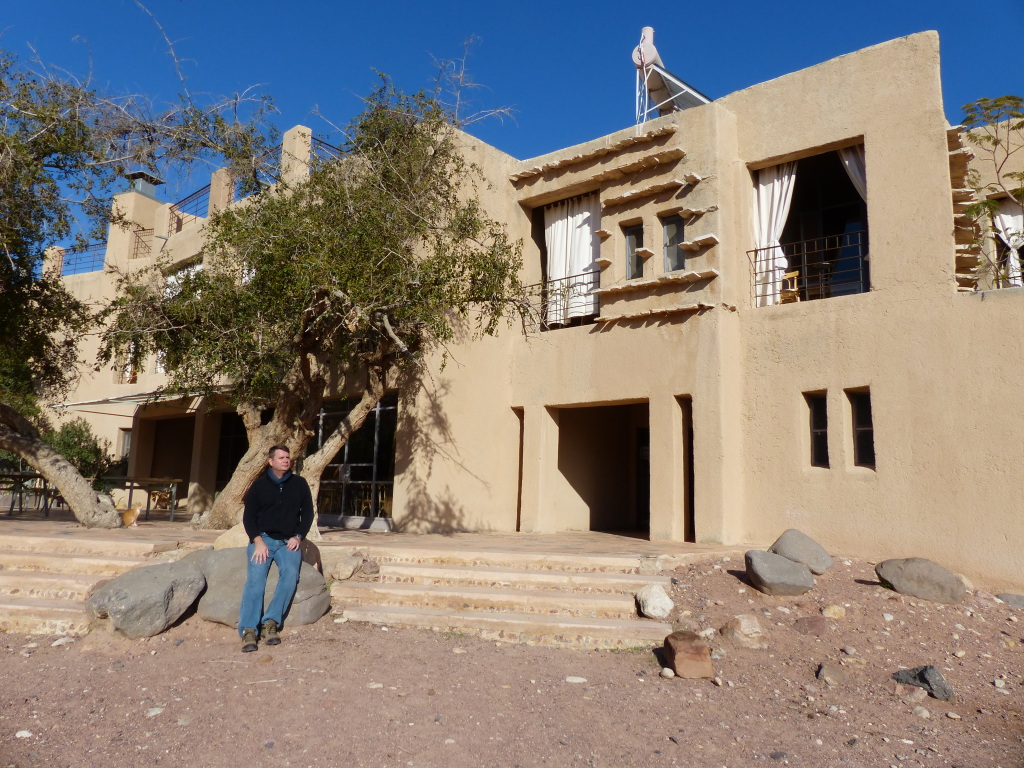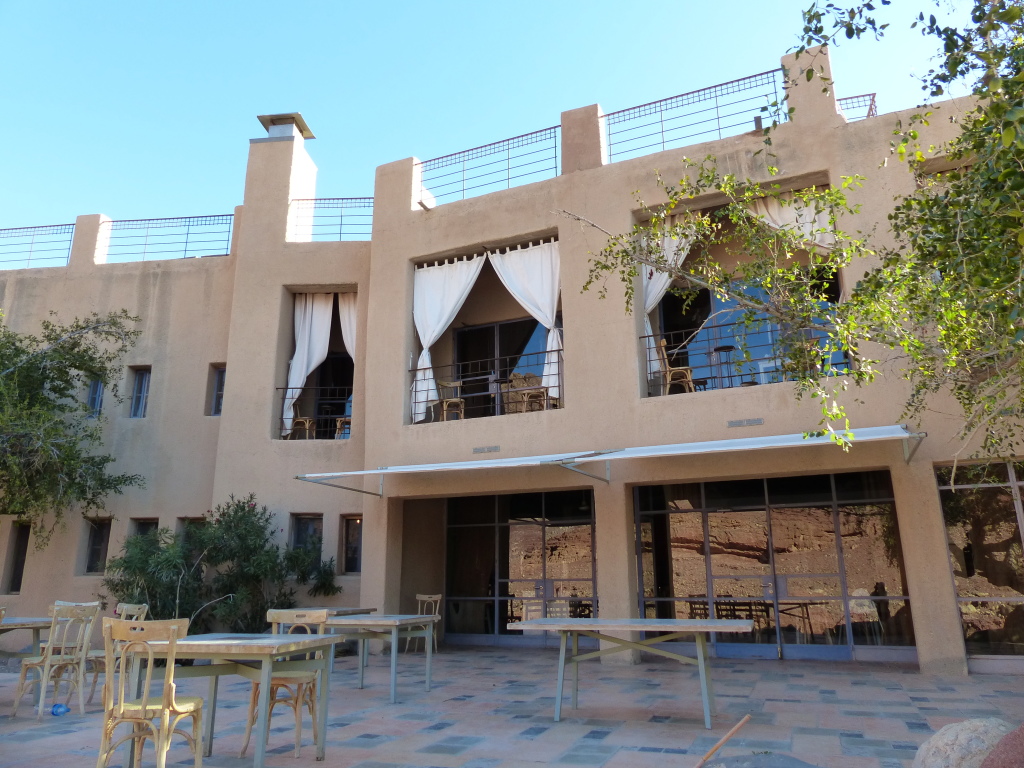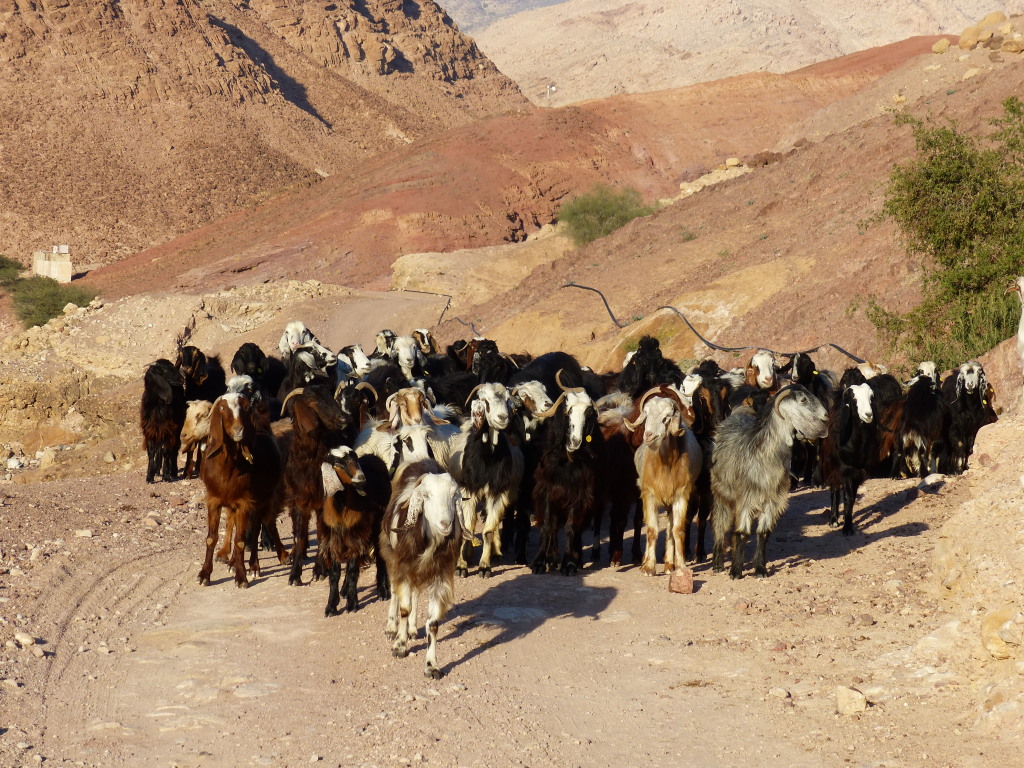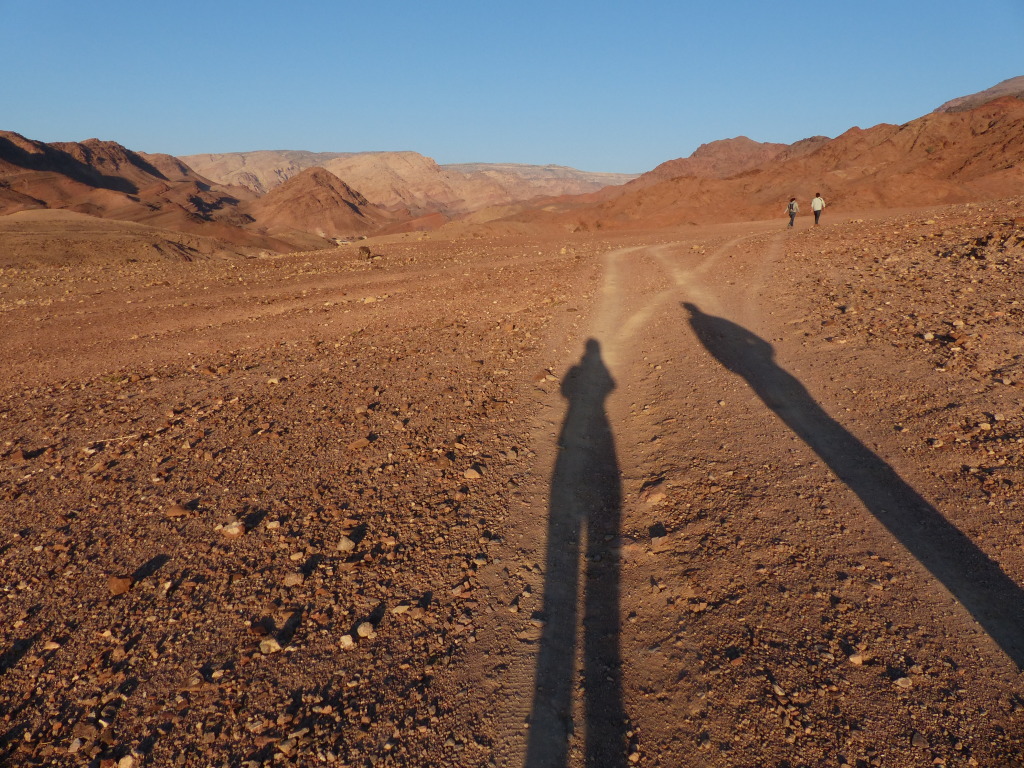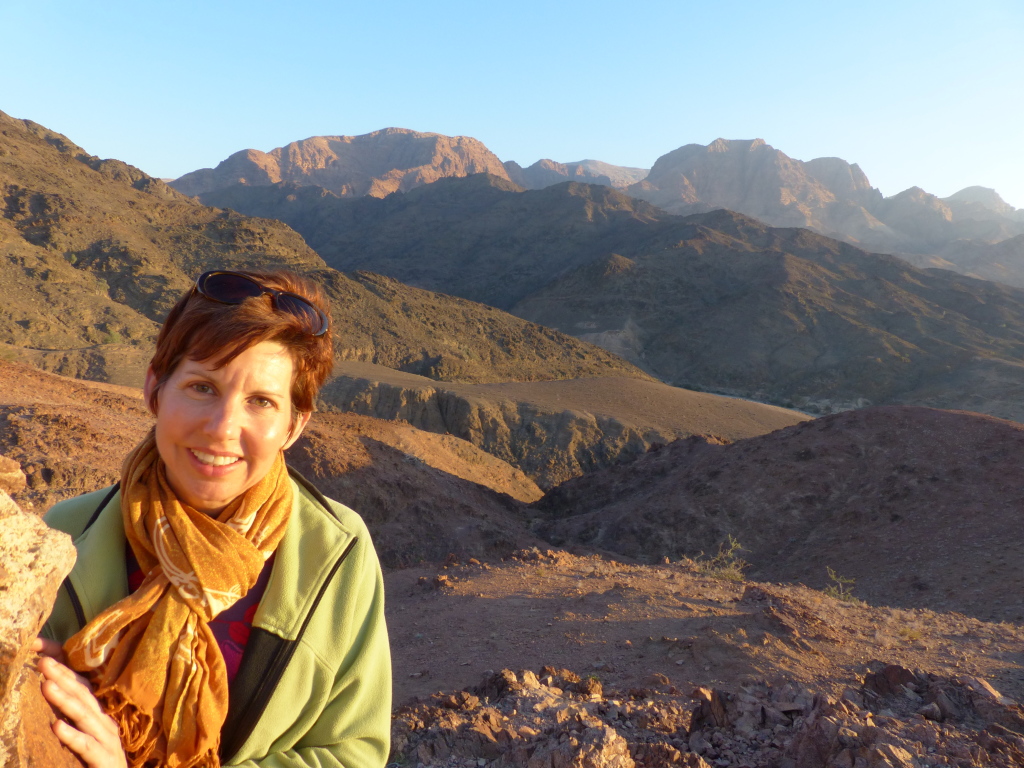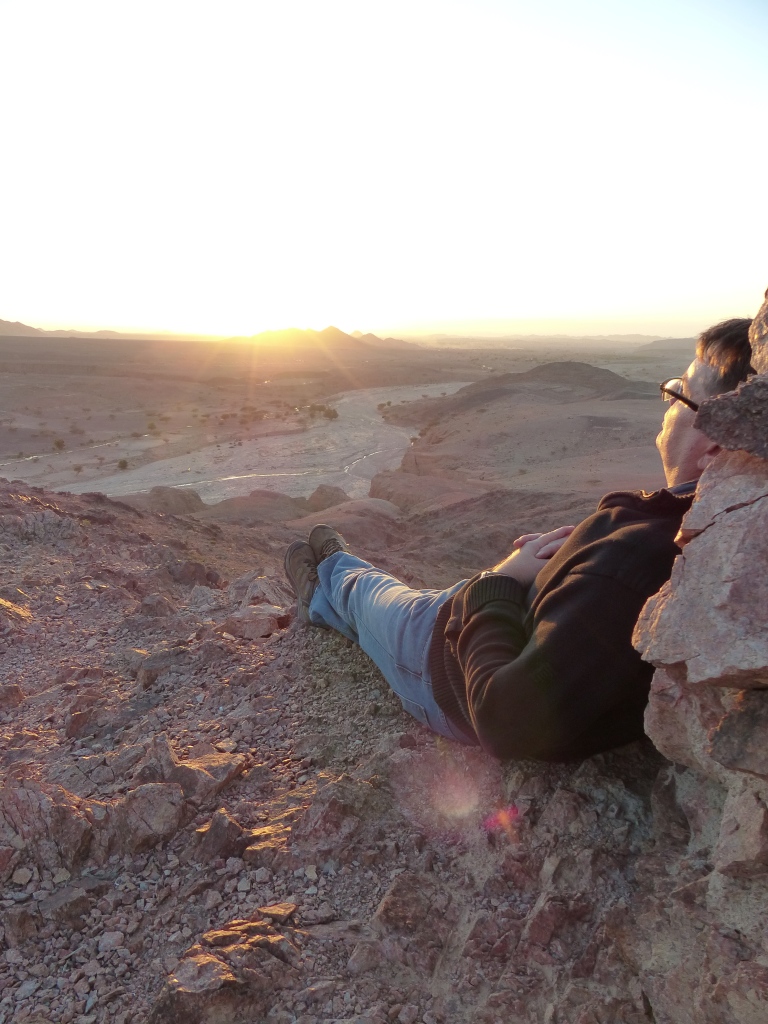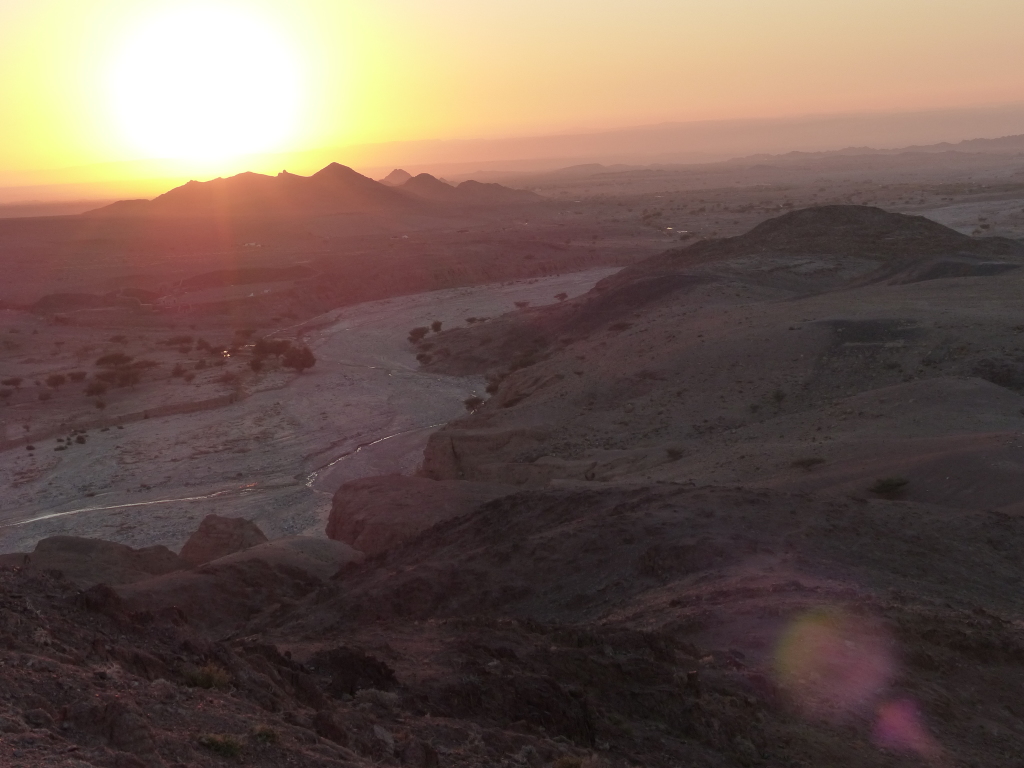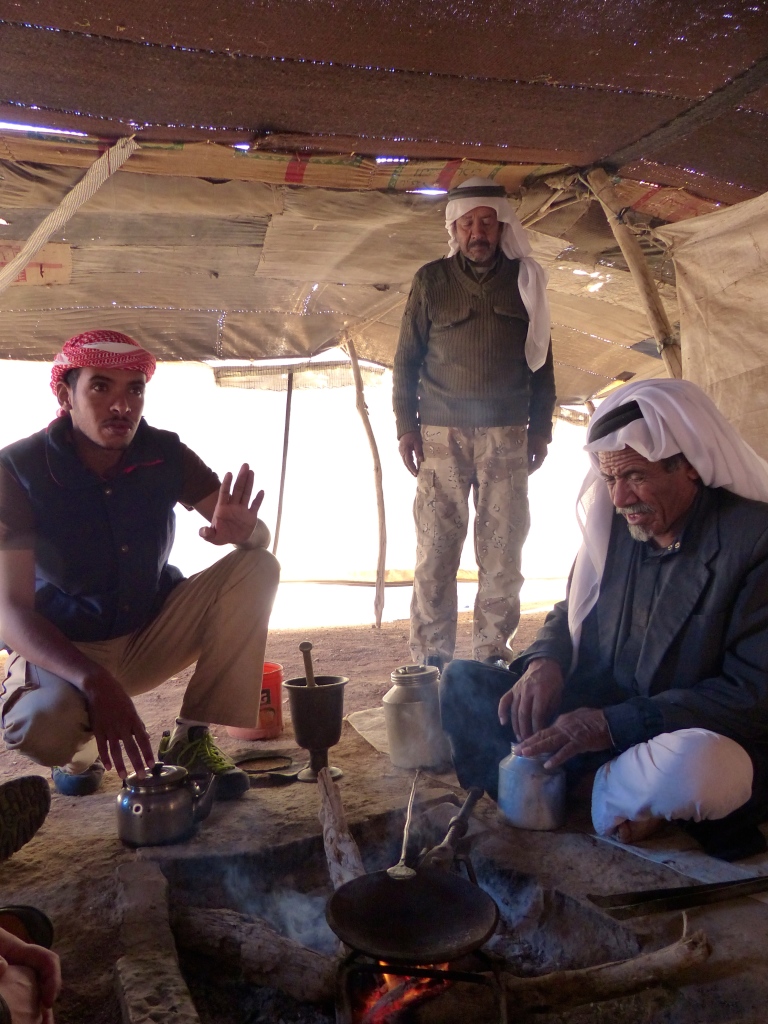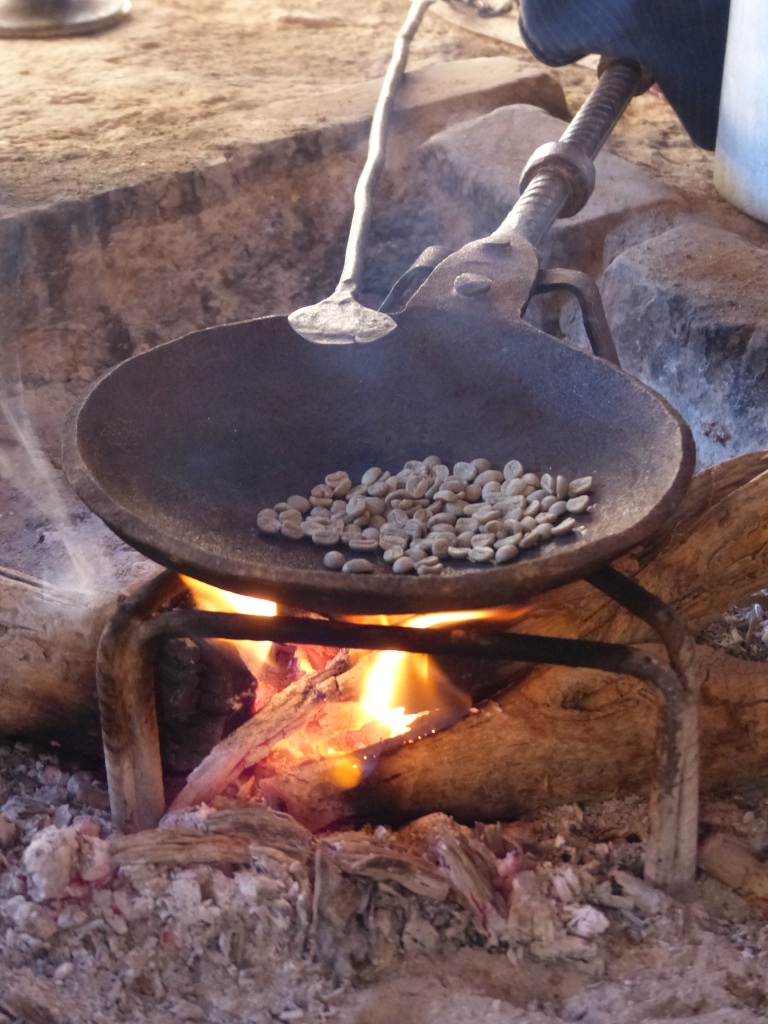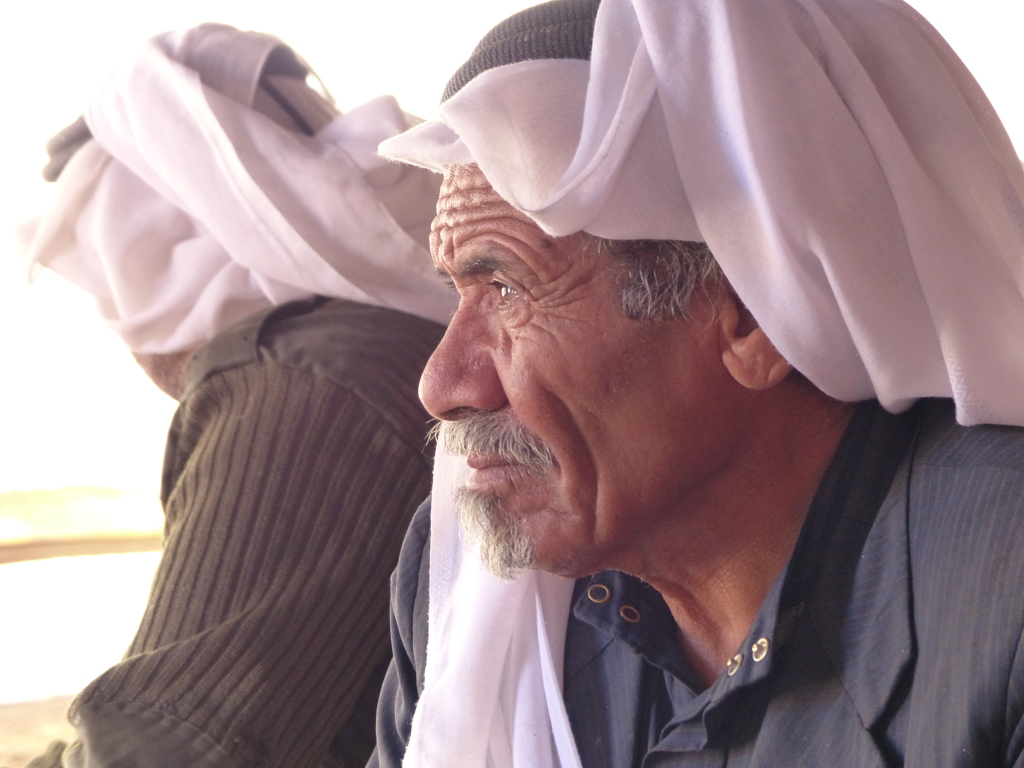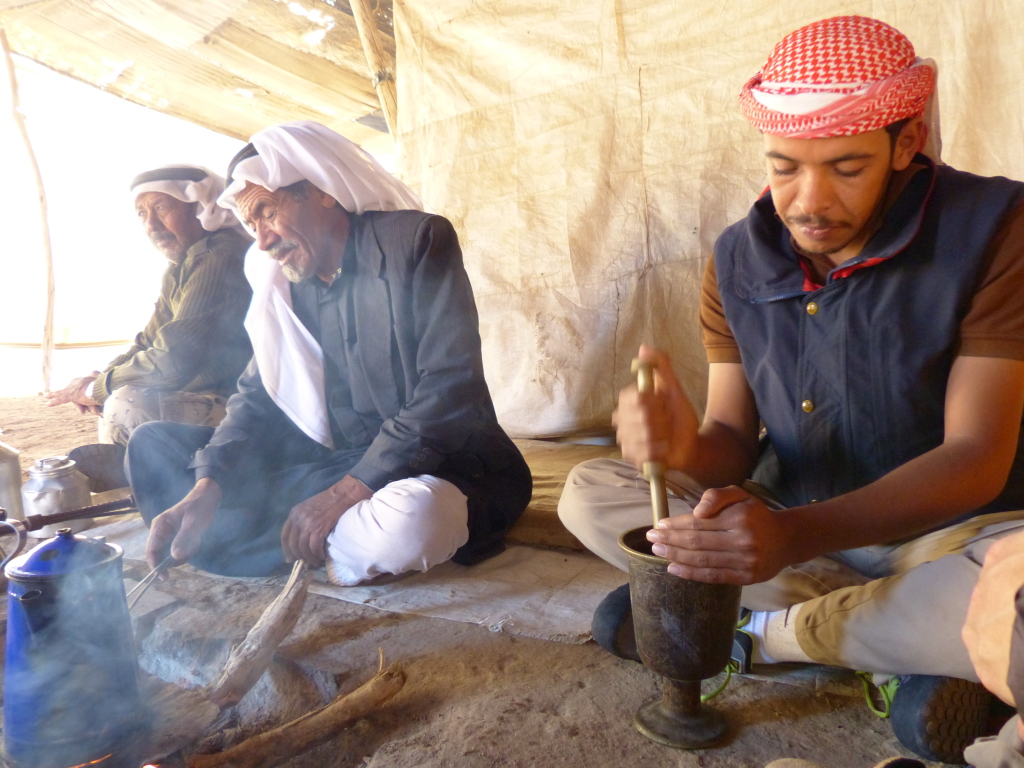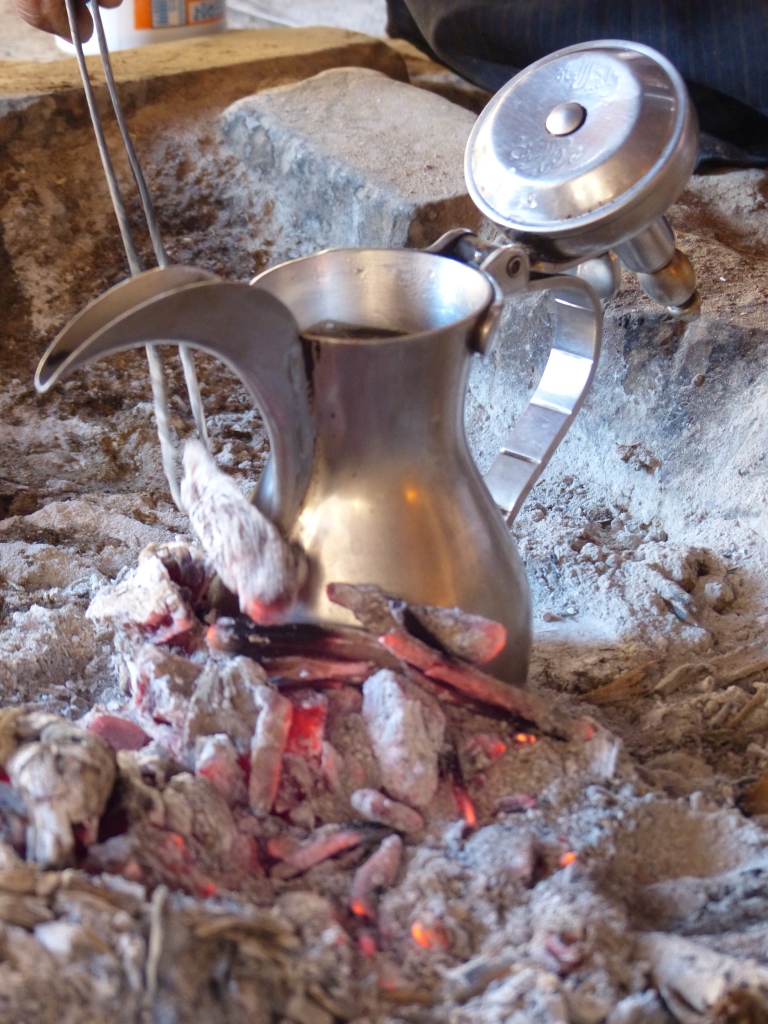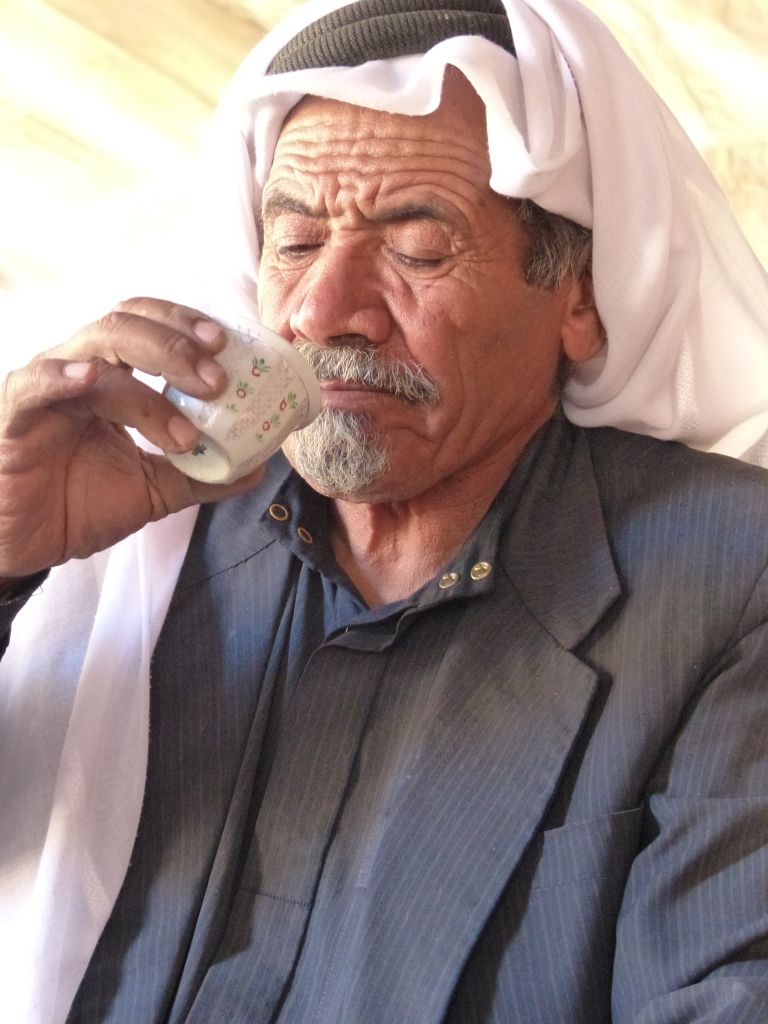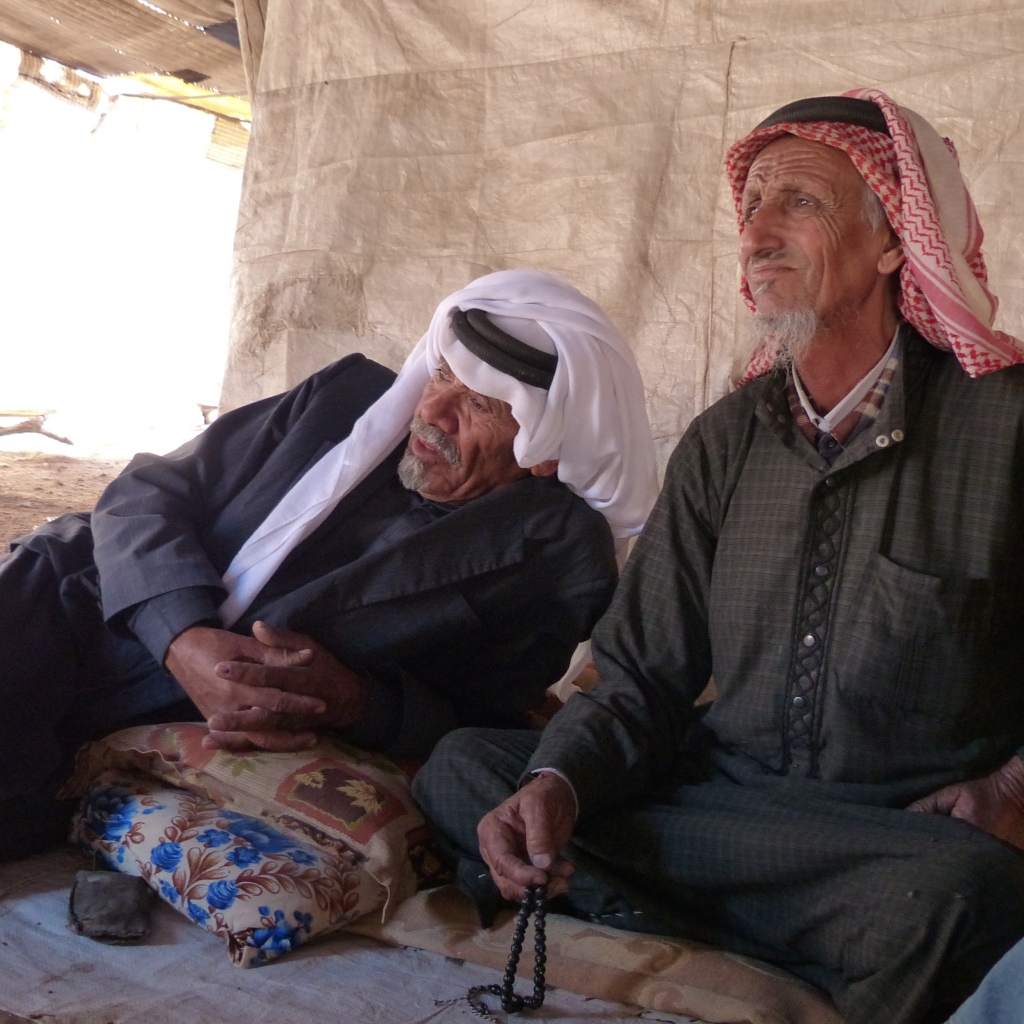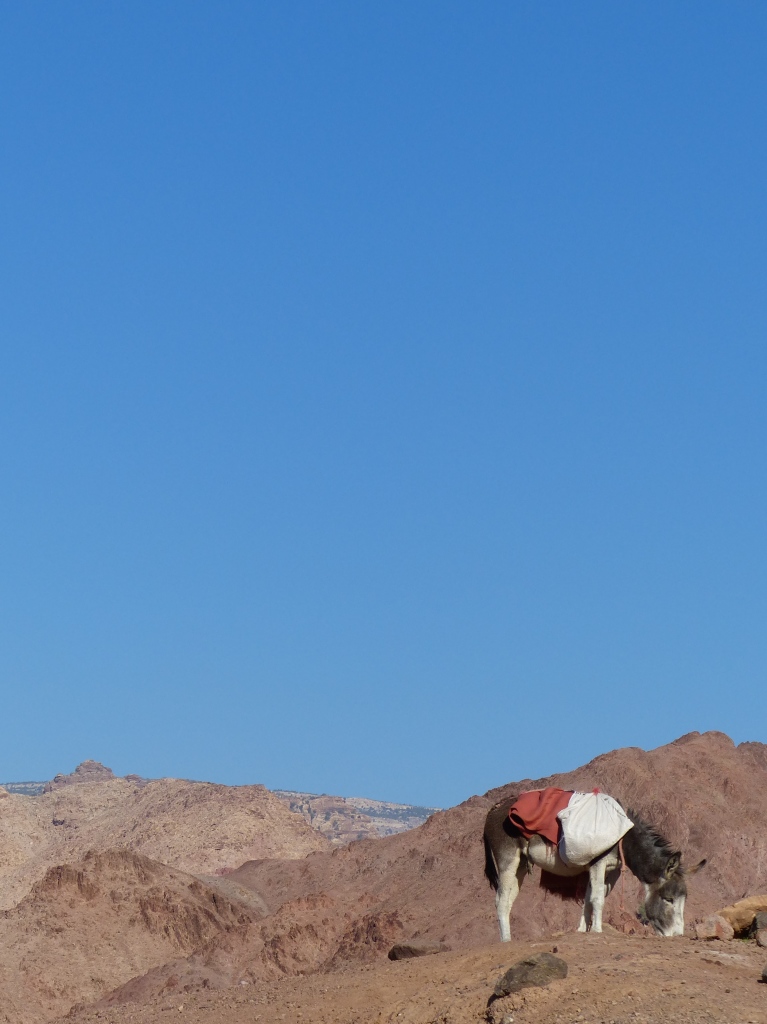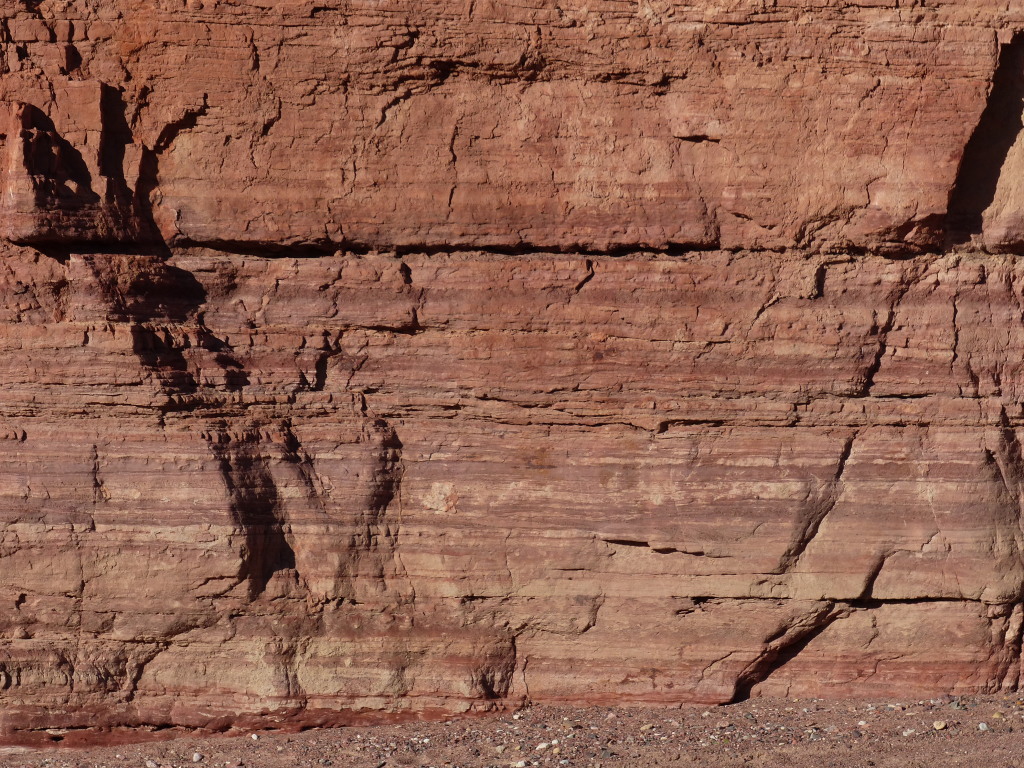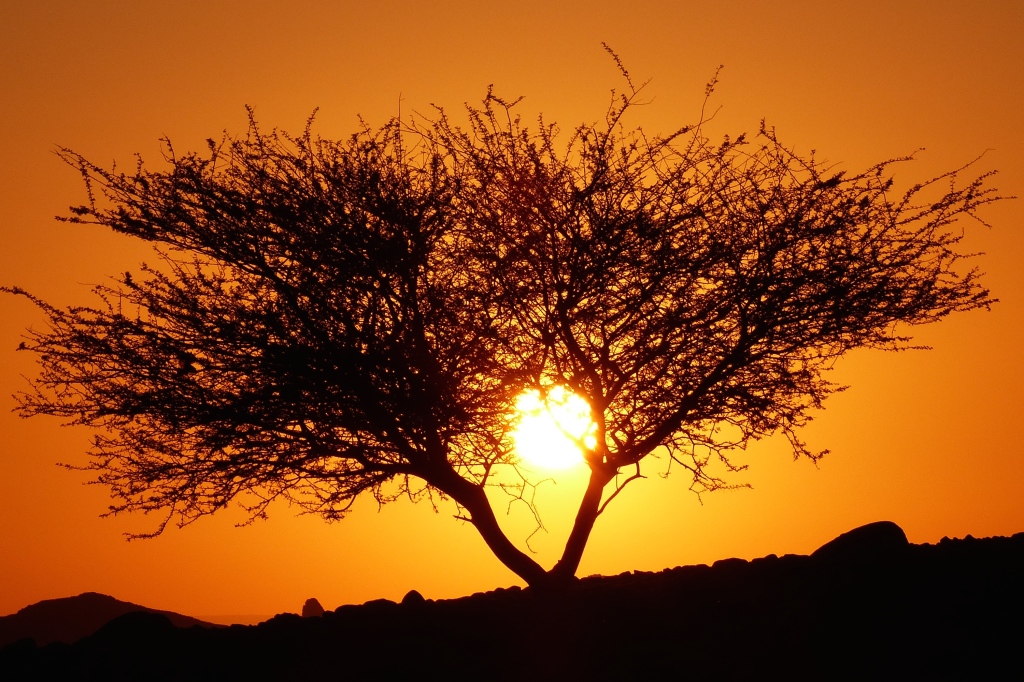Christmas Eve
George dropped us off for two nights at the Feynan Ecolodge reception building, about 15 minutes from the lodge (on a road requiring 4-wheel drive). After a short briefing by a young Bedouin man named Suleiman, we were shown to our room. Simple but clean, it overlooked the hills of the Dana Biosphere Reserve. We were ready for some fresh air and serious peace and quiet.
The Feynan Ecolodge website explains:
The Wadi Feynan area was historically one of three main copper mining hubs in the world. For 30 years, the Natural Resource Authority in Jordan had set up camp in Feynan, scouting and assessing the area with the nostalgic hope that perhaps there was enough copper in those mountains to provide the country with a much needed natural resource. The results always came back the same; after 3-4 thousand years of heavy exploitation, all that remains is a lower grade of copper that would require blasting an 8 square kilometre hole to extract. It was not economically viable and would be environmentally disastrous, so the Royal Society for the Conservation of Nature maintains a constant vigil to resist attempts to exploit these meagre reserves. The lodge was created by the RSCN to offer the local Bedouin communities much needed economic opportunities and provide a sustainable alternative to open cast copper mining. Throughout the 30 years of copper exploration, the Natural Resources Authority was hopeful that things were going to change for them. And they did.
Suleiman took us, along with two other couples, a short distance up the road for a sunset hike. He paused occasionally to tell us a bit about his life here. He has four brothers and three sisters, and they live in a big tent near the ecolodge. It’s their winter spot, protected from the cold winds on three sides by small hills. They moved there three months ago from their summer spot, a little further up the road, which provides shade from the blazing sun. His family keeps sheep and goats. The sheep stay in a pen, but the goats must be taken to graze and then brought back home every day. Suleiman said any member of the family can be the shepherd for the day, whoever has time to do it. The goats generally stick together, and their ears are tagged to show they belong to Suleiman’s tribe. Sometimes they mingle with other goats, but they tend to find their way back to their herd, he said. As we stood by the side of the road chatting, Suleiman said, “That’s my brother on the donkey.” The boy bounced by with a greeting, and moments later, the goats crested the small hill. They stopped and stared at us for a minute before passing by.
We continued walking, past the primary school and the mosque and paused at a rocky clearing. Suleiman gave us a couple options. He said we could walk downhill to a tree that promised nice sunset shots, or we could walk up to a hilltop for a bird’s eye view. We chose to go up. The view was gorgeous with a riverbed cutting through the rocky hills. Back at the clearing, Suleiman served us all sweetened sage tea and we chatted with the other couples.
The call to prayer rang out from the small mosque across the road. I asked Suleiman if it was a live imam or a recording. He pointed to some young boys playing soccer and said their father was the imam, who sang the call to prayer live each day. Not only five times a day either. The imam gave everyone a heads-up call to prayer about 15 minutes before the real one, and Suleiman said the morning call to prayer was a bit different than the others: it included a line about how much better it is to pray than to stay in bed. This imam clearly knows his clientele. His wife makes the bread served at the lodge, and her little soccer-playing boys are the deliverymen. That interconnectedness in the community is a deeply embedded facet of Bedouin life, Suleiman said. “We take care of each other,” he said. “If my hand hurts, everyone’s hand hurts.”
When we returned to the lodge, it was glowing. The lodge strives to use as little electricity as possible, so the whole place was lit with candles, luminaries and lanterns. We could barely see the food on the dinner buffet, but I think we ate a selection of mezzehs, some pickled vegetables, and a few hot vegetarian dishes, including a yummy something with eggplant. Dessert was a milky pudding with bits of biscuit inside.
A French family with three little girls ambushed our attempt to hang out by the fireplace, so we retired to the roof for some stargazing. Oh, I honestly think I have never seen stars like that in my life! The entire sky sparkled as though one of my second graders had spilled silver glitter on a blanket of black velvet. I couldn’t even make out the constellations, except for Orion’s Belt, because they were out-illuminating each other.
We attended the lodge’s short presentation about its ethos regarding local sustainability. Tony could barely keep his eyes open, and I also felt sleep taking over me. By 9 p.m., I had bundled up in long underwear, flannel PJs and thick wool socks and snuggled under the heavy cotton comforter. Tony’s cough kept us awake for some of the night, but we both found a few hours of rest.
A Columbian living in Denmark, a Brit living in Spain and two Americans living in India meet for coffee in a Bedouin tent…
Sitting on our small balcony early the next morning, I could see the lodge’s back deck, the gravelly dry river bed and the striated red hills that reach up to a brilliant blue sky. Suddenly, I heard crunching patter and bleats of approaching goats. About 20 of them trotted up to the lodge. Most aimed for the scrubby bushes a short distance away, but a few couldn’t resist the allure of hopping up the steps to check out the deck. Nobody was there. No food. Nothing of interest. Some wandered off. Some stuck around, climbing as high as they could up the olive tree’s lower branches to nibble on the leaves.
We had signed up to learn about Bedouin coffee after our breakfast of typical Jordanian treats: dates, pickled veggies, deliciously fresh white cheese sprinkled with poppy seeds, deep red tomatoes, cucumbers, hummus and thin flat bread.
Around 9 a.m., we joined Suleiman and two others (Sonjia, the Columbian living in Denmark, and Eddie, the Brit living in Spain) to learn the Bedouin customs related to making and drinking coffee. We walked to his family’s winter camp, but before entering the tent, Suleiman taught us some tent etiquette:
• There’s no doorbell, so you should always clear your throat to warn the family that you’re arriving.
• While waiting to enter, you should sort out the line with the eldest person entering first.
• Women shouldn’t offer their hand to the host unless he reaches out first for a handshake.
We entered and greeted Suleiman’s father and uncle, who both sat cross-legged by a small fire pit. His father shook hands with the men and gestured for us to sit on the floor pillows. Suleiman explained the importance of coffee in Bedouin culture as his father began to roast the beans on a flat pan over the fire. Not an everyday drink like tea, coffee is consumed at special events, such as parties, weddings and negotiations, he said. Suleiman passed a roasted coffee bean to each of us to eat and then poured the rest into a large brass mortar. He ground the beans noisily, clanging his pestle repeatedly as he worked. The sound is an invitation for neighbors to come over and join the family for coffee, he said. In the meantime, his father put a blue kettle of water on the fire to boil and then took over as bean grinder. He dumped the ground beans into a smaller Jordanian coffee pot with a pointy spout, dropped in some cardamom pods and then filled the pot with boiling water. He removed the blue kettle and the cooking stand, pushed aside the smoldering sticks and set the small coffee pot into the ash. He raked embers and hot ash up around the sides of the pot and let the coffee steep.
Suleiman continued sharing stories about coffee’s role in Bedouin culture. He said fathers and tribal elders often negotiate or solve serious problems over coffee. For example, he told of a car accident in which a pedestrian was killed. The pedestrian and the driver were from different tribes, and members of both tribes were angry and spoke of retribution. However, they agreed to wait one month before discussing the incident. After that period elapsed, the elders met over coffee. The son of the pedestrian was served coffee, but he set his cup down. Nothing would be settled until he took a sip. The driver’s tribe argued that the death was an accident and that the driver’s family would do anything, pay anything to make amends. Eventually, the pedestrian’s tribe accepted the apology and agreed that the driver never meant to hurt anyone. They asked only for the family to receive the car insurance settlement. The pedestrian’s son drank the coffee, and the two tribes were back on friendly terms.
We expected Suleiman’s father to pour each of us a full cup of coffee, but it doesn’t work that way. Suleiman explained there may only be two cups for 50 people, so you have to drink fast. When it’s your turn, you can get only two refills. The coffee should be so hot as “to scare your mustache,” he said. You can swirl your cup to cool it, but you should drink it and any refills right away so someone else can use your cup. If you don’t want both refills, you hold up your cup and wiggle it back and forth to signal that you’re finished. The server should always start with the oldest or most important person, or start serving to your right and move counterclockwise around the fire.
I had to wait for both Tony and Eddie to finish their coffee before a cup made it around the circle to me. Suleiman poured just a tiny amount, two sips really. It was very weak but fragrant. When we had all enjoyed the coffee, Suleiman’s mother and sister brought out tea glasses and a platter of mezzehs – tinned tuna, olives, hummus, tomatoes, French fries and the local flat bread. A neighbor showed up (and sure enough, announced his arrival before entering the tent) and sat down for tea with us.
Although I most likely will never need to use my Bedouin coffee drinking skills, I felt grateful for the glimpse into our host’s culture. Suleiman’s deep commitment to family and the Bedouin lifestyle helped to make this morning particularly special. Later, we had another opportunity to appreciate him. After dinner, Tony and I were headed to bed early when Suleiman suddenly stopped eating and said, “Wait, I want to show you something.” He took us up on the roof and used a laser pointer to identify a bunch of constellations. Then he unlocked a storage cabinet and took out the telescope to look at the craters on the moon. Such a kind gesture!

